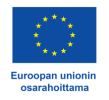Promoting trauma-informed approach in social and health care, implementing and evaluating a training program.

Goal
The aim of the project is to develop a training model for building and creating trauma-informed work communities. The training package and methods, that will be created in the project, will increase the readiness of social and health care service organisations to transform towards a trauma-informed operational culture and work community. Recently there has been a considerable need for competences of trauma-informed approach in the fields of social and health care and education.
In order to offer trauma-informed social or health care services we need to have safe and sensitive work communities for social and health care professionals. A trauma-informed approach promotes the wellbeing of the professionals and the wellbeing of their work community.
The wellbeing services counties have only recently started their operations, which has caused a lot of changes and feelings of insecurity in employees and work communities. In a trauma-informed approach the safety of encounters is important. Feeling of security is always a bodily experience and connected to our nervous system and all our previous experiences. A trauma-informed approach aims for psychologically and bodily safe interaction not only in work communities but also in a societal level. Implementing a trauma-informed approach to organisations and services can therefore support the entire health and social services reform as a cross-cutting change for different services and occupational groups.
The project consists of four work packages.
Work package 1 develops a multiprofessional training model that supports continuous learning for the social and health care sector.
Work package 2 is responsible for implementation of the planned training package in different wellbeing services counties for multiprofessional groups.
Work package 3 will measure the effectiveness and impact of the training.
Work Package 4 is for managing and dissemination the project.
Funding source
Contact persons
eeva-mari.miettinen [at] tuni.fi
